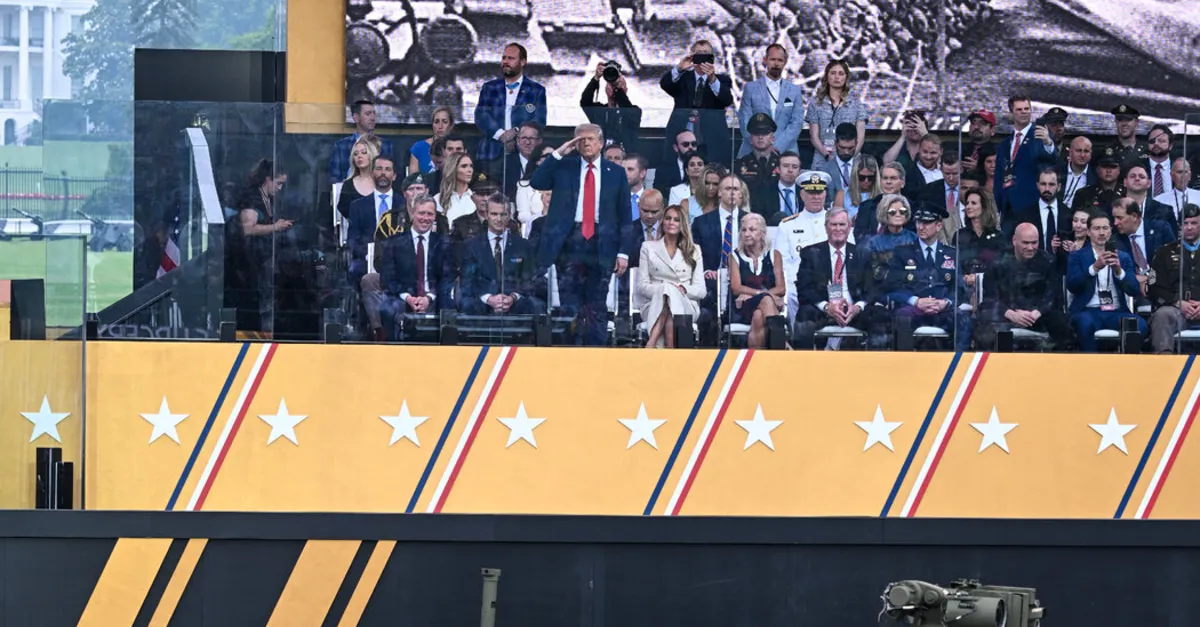
On Tuesday, during a lengthy address at the Marine Corps Base Quantico in Virginia, President Donald Trump shared his latest military strategy with a gathering of the nation’s top military leaders. Contrary to the expectations of focusing on NATO allies like Poland, Romania, and Estonia, where recent Russian drone incursions have raised concerns, Trump identified San Francisco, Chicago, New York, and Los Angeles as key areas for military attention. “We’re going to straighten that out one by one, and this is going to be a major part for some of the people in this room,” he remarked, referring to what he labels as crime-ridden urban environments. “It’s a war from within,” he emphasized.
This declaration from Trump has sparked debate among historians and former military leaders, who argue it contradicts the foundational principles of the United States. Trump's suggestion that "we should use some of these dangerous cities as training grounds for our military" challenges the long-standing belief that the military should remain nonpartisan. This principle, deeply embedded in American democratic traditions, aims to ensure that the military serves the nation as a whole rather than aligning with a specific political agenda. Traditionally, American forces have been directed towards external threats, not the so-called “enemy from within,” as Trump described.
Throughout his presidency, Trump has faced opposition from military leaders who have resisted his attempts to deploy military forces for domestic purposes. During his first term, Defense Secretaries Jim Mattis and Mark T. Esper, along with top military officials like Gen. Mark Milley and Gen. Joseph Dunford, worked to prevent Trump from utilizing the military to advance his political agenda. For instance, when Trump sought to deploy troops to address what he termed a migrant “invasion” at the southwestern border, Mattis limited the deployment to National Guardsmen in support roles, avoiding direct confrontation with migrants.
Fast forward to Trump's second term, and the dynamics have shifted significantly. The military leadership now comprises individuals who either support Trump's directives or yield to them, and the Republican party controls both the House and Senate, allowing Trump to push through his military-related appointments and initiatives without substantial opposition. This shift has resulted in actions such as deploying National Guard troops to Washington D.C. against the wishes of local leaders and sending active-duty Marines to Los Angeles despite protests from the city’s officials.
Military historians warn that using troops for domestic law enforcement contradicts the intentions of the nation’s founders, who feared the potential for a standing army to be used against the populace. The Posse Comitatus Act of 1878 generally prohibits active-duty military forces from engaging in domestic law enforcement, ensuring military focus remains outward rather than inward. This law emerged partly to appease Southern states resistant to federal intervention during Reconstruction, highlighting the complex relationship between military power and civil rights.
The framers of the American Constitution were acutely aware of the dangers posed by a standing army, shaped by historical events such as the English Civil War. They aimed to prevent a situation where military forces could be used against the people they were meant to protect. They established that Congress, not the President, holds the power to raise and fund the military, emphasizing a system of checks and balances intended to limit partisan influence in military affairs.
Trump's recent remarks have raised concerns about the military's nonpartisan tradition. According to retired Maj. Gen. Paul D. Eaton, the sight of American military leaders listening to Trump’s speech could be troubling for allied nations facing threats from Russia. The military's historical reputation for professionalism and neutrality is now at risk as Trump advocates for deploying troops to urban areas not experiencing widespread civil unrest.
Experts like Peter Feaver, a political science professor, suggest that deploying troops in non-crisis situations undermines the military's nonpartisan stance and could foster division within the ranks. The military should focus on preparing for contemporary threats from nations like China, Russia, and Iran, rather than engaging in domestic political conflicts.
As Trump shared his vision for the future of America’s military at Quantico, he framed his administration as a necessary force against incompetence, asserting, “With leaders like we have right here in this beautiful room today, we will vanquish every danger and crush every threat to our freedom.” However, as the military navigates this new terrain, the balance between fulfilling its constitutional role and maintaining its nonpartisan integrity remains an ongoing challenge.